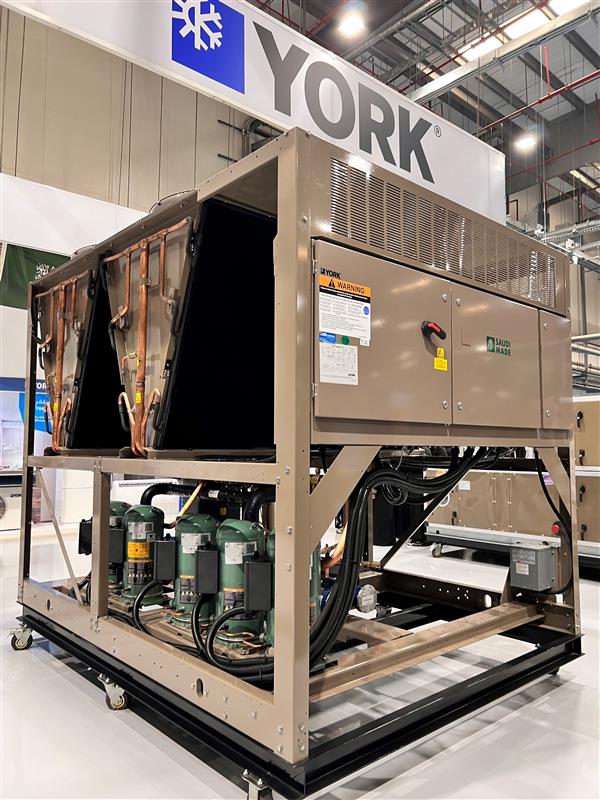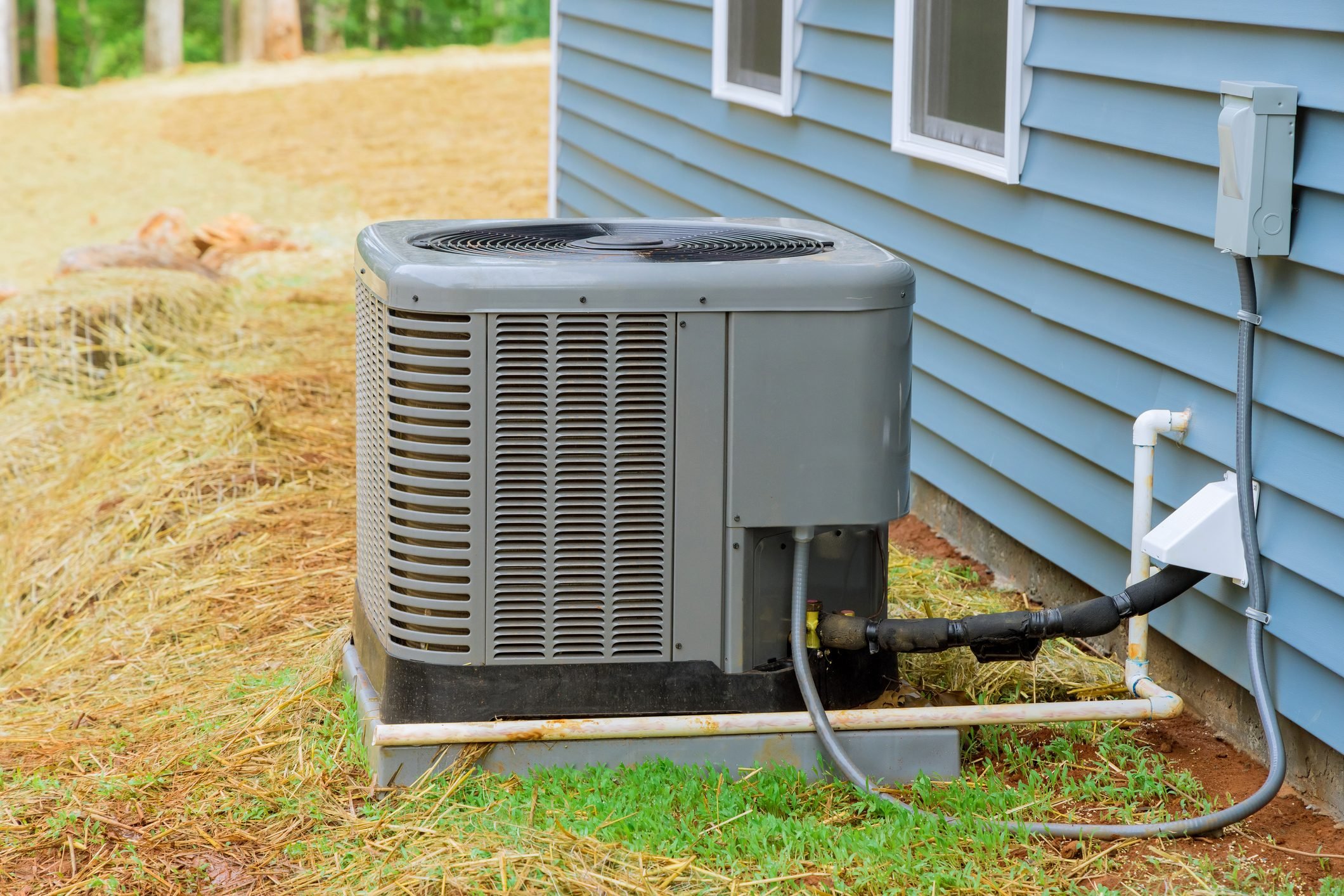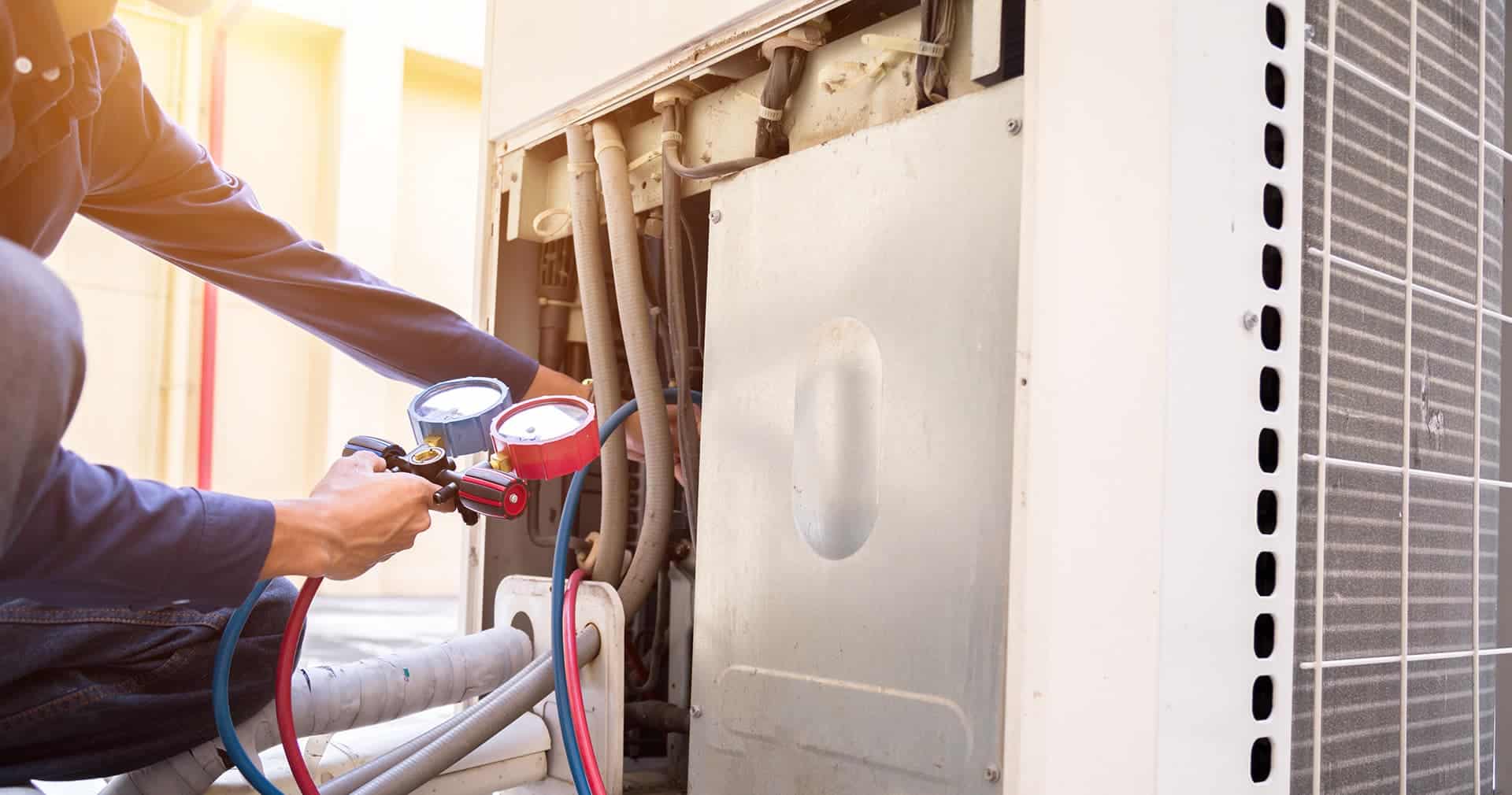How a Trustworthy A/c System Improves Indoor Air Quality and Comfort
A reliable cooling and heating system is vital for preserving indoor air quality and comfort. It controls temperature level and humidity, producing a healthier living environment. Efficient air purification removes contaminants and irritants, while appropriate humidity degrees stop mold development. Routine maintenance guarantees peak efficiency, improving system effectiveness. Understanding these parts exposes just how they engage to produce a fresh atmosphere. Nevertheless, the relationship in between heating and cooling systems and overall wellness goes deeper than one could anticipate.
Recognizing the Basics of Heating And Cooling Solutions
Cooling and heating systems, essential for modern-day convenience, encompass air flow, heating, and air conditioning components that function with each other to regulate interior atmospheres. These systems are designed to maintain optimal temperatures, making certain that rooms remain comfy no matter of outside weather condition problems. Burner, such as heaters or warmth pumps, give warmth throughout cooler months, while a/c systems cool spaces when temperature levels climb.
Air flow plays an essential role, assisting in the flow of fresh air and eliminating stale air, which assists in keeping a balanced ambience. Various kinds of a/c systems exist, consisting of systematized and decentralized arrangements, each fit for various structure sizes and objectives. Additionally, contemporary improvements have actually introduced wise modern technologies, enabling enhanced control over indoor environment. Recognizing these basics enables users to appreciate just how heating and cooling systems add to overall well-being and comfort in household and business rooms alike, preparing for discussions on their effect on indoor air high quality.
The Function of Air Filtration in Indoor Air High Quality
A significant aspect of keeping interior air high quality is effective air filtering, which plays a crucial duty in removing pollutants and allergens from the atmosphere. A/c systems outfitted with top quality filters can catch a range of impurities, including dust, pollen, family pet dander, and mold spores. This purification process substantially minimizes the concentration of airborne particles, resulting in a cleaner and healthier interior environment.
Additionally, routine maintenance of air filters is important to guarantee peak performance. Blocked or dirty filters can hinder airflow, lowering the system's effectiveness and potentially enabling pollutants to circulate within the room. By replacing or cleaning filters as suggested, homeowners can improve their cooling and heating system's capacity to offer fresh air.
Humidity Control and Its Influence On Convenience
While numerous might concentrate on temperature law, humidity control is just as essential for preserving convenience in indoor atmospheres. High humidity degrees can cause pain, making rooms feel warmer than they actually are, while reduced humidity can trigger dryness, irritability, and enhanced susceptibility to respiratory concerns. A trustworthy HVAC system plays a considerable function in taking care of indoor humidity, making certain that air is neither as well wet nor too completely dry.
Optimal moisture degrees generally vary from 30% to 50%, promoting a comfy ambience. When moisture is well-regulated, occupants experience improved thermal convenience, boosted interior air high quality, and minimized risks of mold development and dust mite expansion. Appropriate humidity control can protect furnishings and structural components from damage triggered by extreme dampness or dry skin. Integrating effective humidity monitoring into Cooling and heating systems is important for promoting a pleasurable and healthy interior setting favorable to health and performance.
The Relevance of Routine Upkeep
Regular upkeep of cooling and heating systems is essential for ensuring peak efficiency and longevity. This proactive method not just lessens possible breakdowns yet also enhances energy effectiveness, which can lead to considerable cost financial savings over time. Scheduled inspections allow specialists to determine and address problems before they escalate into expensive fixings, making sure the system runs smoothly.
In addition, regular upkeep includes cleansing or changing filters, inspecting refrigerant degrees, and evaluating air ducts, all of which add to perfect air flow and system effectiveness. By maintaining the cooling and heating system, home owners can likewise protect against too much damage on elements, prolonging the total life-span of the system.
Moreover, a well-kept HVAC system operates silently and securely, lowering the risk of dangerous situations. In final thought, routine upkeep is a vital investment in both the efficiency of a/c systems and the comfort of indoor settings, ultimately advertising a healthier living room.

Exactly How Heating And Cooling Equipment Reduce Allergens and Pollutants
Reliable cooling and heating systems play an essential duty in reducing allergens and toxins within interior atmospheres, thus improving overall air quality. These systems make use of advanced filtering innovations that record dust, plant pollen, mold and mildew spores, and animal dander, stopping them from circulating throughout the living area. High-efficiency particulate air (HEPA) filters are particularly reliable, trapping as much as 99.97% of particles as small as 0.3 microns.

Power Effectiveness and Its Advantages for Health and wellness
Energy-efficient HVAC systems not just reduce energy usage but also have substantial wellness advantages for occupants. By enhancing energy use, these systems can keep constant interior temperature levels, which helps prevent the development of mold and mildew and mildew. Controlling humidity levels is crucial for respiratory health and wellness, as excess dampness can exacerbate allergic reactions and bronchial asthma. Furthermore, energy-efficient systems commonly incorporate innovative purification modern technologies that boost air high quality by eliminating airborne bits and contaminants, further improving total health.
Lower power usage implies lowered emissions from power plants, adding to cleaner exterior air high quality, which indirectly supports the health of citizens. With a concentrate on sustainability, energy-efficient cooling and heating systems advertise a much healthier living atmosphere. By buying such systems, home owners not only minimize energy bills however also make a considerable commitment to the wellness of their families and neighborhoods. Inevitably, energy effectiveness in cooling and heating systems cultivates a much healthier interior atmosphere for all.
Enhancing Comfort Via Smart Technology Integration
As wise technology continues to evolve, its assimilation right into cooling and heating systems considerably enhances interior comfort. Smart thermostats, as an example, enable customers to tailor home heating and cooling routines based on their daily routines, making sure suitable temperature levels when people are home. These devices can learn preferences with time, readjusting setups immediately for optimum comfort.
Smart sensing units monitor indoor air high quality and humidity degrees, giving real-time comments that helps keep a healthy and balanced atmosphere. By connecting with heating and cooling devices, these sensing units can prompt changes to airflow and temperature, making certain constant convenience.
Mobile applications additional empower individuals, enabling push-button control of cooling and heating setups from anywhere, thereby giving convenience and flexibility.
Frequently Asked Concerns

How Can I Inform if My HVAC System Is Reliable?
To figure out HVAC performance, one can examine energy expenses for abnormalities, check for unusual noises, screen temperature uniformity, warranty correct air flow, and schedule normal upkeep. These elements jointly suggest the system's operational performance and performance.
What Indicators Indicate Poor Indoor Air High Quality?
Signs of Resources bad indoor air quality consist of consistent odors, too much dust build-up, enhanced allergy signs, visible mold development, and fluctuating moisture levels. These indicators often suggest that air flow or air filtration systems might be inadequate or defective.
Can a Cooling And Heating System Assist With Pet Dander?

How Typically Should I Change My Air Filters?
Air filters ought to typically be changed every 1 to 3 months, relying on use and indoor air high quality. HVAC experts. Regular replacement helps keep effective air flow and minimizes dirt, irritants, and other fragments in the home atmosphere
What Are the Prices of Cooling And Heating System Installment?
The costs of a/c system setup generally vary from $3,000 to $7,000, relying on factors such as system type, home size, and local labor rates. Additional attributes may enhance overall expenses significantly.
A trustworthy A/c system is vital for maintaining indoor air high quality and comfort. Cooling and heating systems, essential for modern convenience, encompass home heating, air, and ventilation conditioning components that function with each other to control indoor settings. Efficient HVAC systems play a vital duty in lowering irritants and contaminants within indoor atmospheres, therefore improving total air top quality. An A/c system can considerably lower pet dander by using advanced purification systems and normal upkeep (HVAC experts). The costs of A/c system installation generally vary from $3,000 to $7,000, depending on factors such as system kind, home size, and local labor rates